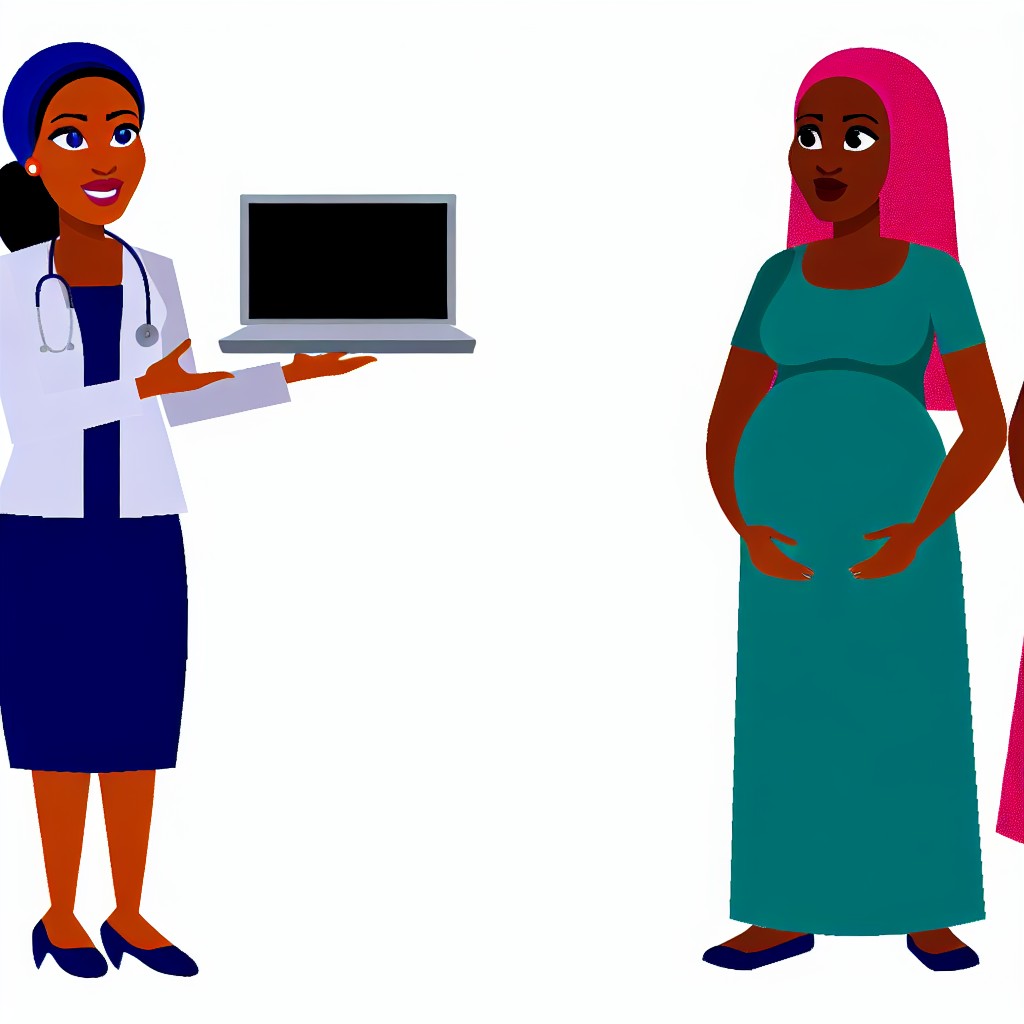Introduction
Obstetrics and Gynaecology in Nigeria play a vital role in women's healthcare.
This field focuses on the reproductive health of women.
Women in Nigeria face various healthcare challenges.
Limited access to quality care is one major challenge.
Obstetric fistula remains a common issue in Nigeria.
Maternal mortality rates continue to be high.
Unsafe abortions also contribute to healthcare problems.
History of Obstetrics and Gynaecology in Nigeria
Evolution of Medical Practices in Obstetrics and Gynaecology
Obstetrics and gynaecology have a rich history in Nigeria.
The history dates back to traditional birthing practices and rituals.
Over time, modern medicine influenced these practices.
The practices evolved to incorporate scientific advancements in the field.
The introduction of antenatal care has improved maternal health.
Safe delivery practices enhanced infant health outcomes.
Postnatal care has significantly contributed to better health results.
Impact of Colonial Rule on Healthcare for Women
The healthcare system in Nigeria changed significantly during colonial times.
This included advances in obstetrics and gynaecology.
Western medical practices were introduced.
Women’s health became a focused area of medical attention.
Access to quality care remained limited, however.
Traditional beliefs often conflicted with modern medical interventions.
This clash created challenges in providing comprehensive healthcare for women.
Development of Specialized Training and Education
The healthcare sector’s growth increased specialized training programs.
Local medical schools offer obstetrics and gynaecology courses.
International schools also provide residency programs in the field.
These programs equip healthcare professionals with essential skills.
The number of trained obstetricians and gynaecologists has risen.
Healthcare outcomes for women have improved as a result.
The history of obstetrics and gynaecology reflects a blend of traditions.
Colonial influences also played a role in its development.
Modern medical advancements continue to evolve healthcare for women in Nigeria.
Current State of Obstetrics and Gynaecology in Nigeria
- Availability of healthcare facilities and services
In Nigeria, the availability of healthcare facilities and services in obstetrics and gynecology varies between urban and rural areas.
Major cities like Lagos, Abuja, and Port Harcourt have well-equipped hospitals and clinics offering comprehensive obstetric and gynecological care.
However, in rural areas, access to these services is limited due to a lack of infrastructure and healthcare providers.
- Challenges in accessing quality care for women
One of the major challenges in accessing quality obstetric and gynecological care for women in Nigeria is the high cost of services.
Many women, especially those from low-income households, cannot afford to pay for prenatal care, delivery services, and postnatal care.
This leads to high rates of maternal and infant mortality in the country.
- Role of government and non-profit organizations in improving maternal healthcare
The Nigerian government, along with non-profit organizations, plays a crucial role in improving maternal healthcare in the country.
The government has implemented various initiatives such as the National Strategic Health Development Plan to increase the availability and accessibility of obstetric and gynecological services.
Non-profit organizations like the Wellbeing Foundation Africa also work towards improving maternal health through awareness campaigns, training healthcare providers, and providing essential resources to pregnant women.
Transform Your Career with Expert Guidance
Get personalized mentorship consulting that’s tailored to your unique path. Our expert advice is actionable and exclusive.
Get StartedDelve into the Subject: Introduction to Anaesthesiology in Nigeria
Common Obstetric and Gynaecological Conditions in Nigeria
- High prevalence of maternal mortality and morbidity
- Important diseases and conditions affecting women's health
- Cultural and social factors influencing healthcare outcomes
Nigeria has one of the highest rates of maternal mortality in the world.
The estimated rate is 814 deaths per 100,000 live births.
This is largely due to limited access to skilled healthcare providers.
Many facilities are inadequate and the quality of care during pregnancy is poor.
Women in Nigeria face a range of health challenges.
These include HIV/AIDS, cervical cancer, and obstetric fistula.
Complications from unsafe abortions also affect many women.
These conditions have serious consequences for women's health and well-being.
Cultural beliefs and practices often impact women's access to healthcare.
Stigma surrounding reproductive health can prevent women from seeking treatment.
Lack of education and gender inequality also hinder access to appropriate care.
Addressing these obstetric and gynaecological conditions requires a multi-faceted approach.
Improving access to quality healthcare services is essential.
Increasing awareness and education on reproductive health will help many women.
Challenging harmful cultural norms that perpetuate inequality is vital.
Healthcare providers, policymakers, and communities must work together.
The goal is to create a healthcare system that prioritizes women's health and well-being.
Discover More: Funding and Scholarships for Rehab Students Nigeria
Role of Obstetricians and Gynaecologists in Nigeria
Obstetricians and gynaecologists play a crucial role in the healthcare system of Nigeria.
They focus particularly on women’s reproductive health.
Let’s delve into the duties and responsibilities of healthcare providers in this field.
Duties and Responsibilities of Healthcare Providers in the Field
- Provide prenatal care to pregnant women to ensure a healthy pregnancy and delivery.
- Perform routine gynaecological exams to screen for any potential health issues.
- Diagnose and treat reproductive health issues such as infertility, endometriosis, and fibroids.
- Manage labour and delivery, ensuring the safety and well-being of both mother and baby.
- Perform surgical procedures such as cesarean sections and hysterectomies when necessary.
Importance of Preventive Care and Early Detection
- Encourage regular screenings for cervical and breast cancer to detect any abnormalities early.
- Promote healthy lifestyle choices to prevent common gynaecological issues.
- Educate women about contraception options and family planning to empower informed choices.
- Provide counselling and support for women experiencing reproductive health challenges.
- Advocate for policies and programmes that improve women’s access to reproductive healthcare services.
Collaboration with Other Healthcare Professionals for Comprehensive Care
- Work closely with midwives, nurses, and other healthcare professionals to provide holistic care to women.
- Consult with specialists in oncology, urology, and endocrinology for complex cases.
- Participate in multidisciplinary teams to address diverse needs of women’s reproductive health.
- Collaborate with community health workers to reach underserved populations with essential healthcare services.
- Engage in continuous learning and professional development to stay updated on latest advancements.
Obstetricians and gynaecologists in Nigeria play a vital role in promoting women’s health and well-being.
They use expertise and dedication to deliver quality care.
By fulfilling their duties and embracing preventive care, early detection, and collaboration, they advance women’s reproductive health in the country.
See Related Content: Preventing Cavities in Nigerian Children
Training and Education in Obstetrics and Gynaecology
Training and education in obstetrics and gynaecology in Nigeria are crucial for healthcare development.
Here is an overview of medical schools and residency programs available in Nigeria.
This includes the importance of continuous medical education and opportunities for research.
Overview of Medical Schools and Residency Programs in Nigeria
- Medical schools in Nigeria offer undergraduate training in obstetrics and gynaecology as part of the MBBS curriculum.
- Residency programs in obstetrics and gynaecology are available in teaching hospitals across the country.
- Popular institutions for residency training include Lagos University Teaching Hospital, University of Nigeria Teaching Hospital, and Ahmadu Bello University Teaching Hospital.
Importance of Continuous Medical Education for Healthcare Providers
- Continuous medical education is essential for healthcare providers to stay updated on the latest advancements in obstetrics and gynaecology.
- It helps improve patient care, ensures quality standards are met, and enhances professional growth and development.
- Workshops, conferences, seminars, and online courses are ways healthcare providers can engage in continuous medical education.
Opportunities for Specialization and Research in Obstetrics and Gynaecology
- Healthcare providers in Nigeria have various specialization opportunities including maternal-fetal medicine, reproductive endocrinology, and gynaecologic oncology.
- Research opportunities focus on improving maternal and child health outcomes in Nigeria.
- Collaborations with international research institutions and funding agencies allow providers to participate in advanced research.
Training and education in obstetrics and gynaecology ensure quality healthcare delivery in Nigeria.
Continuous medical education, specialized training, and research benefit providers and improve maternal and child health outcomes.
Explore Further: Common Pathogens Studied in Nigeria

Innovations and Advancements in Obstetrics and Gynaecology in Nigeria
Over the years, the field of obstetrics and gynaecology in Nigeria has seen significant advancements.
These innovations have revolutionized women’s healthcare across the country.
The developments have improved quality of care, access to services, and overall outcomes for women.
Introduction of New Technologies and Procedures
- Advanced diagnostic imaging techniques such as ultrasound and MRI have improved prenatal care.
- These technologies help detect abnormalities in the early stages of pregnancy.
- Minimally invasive surgical procedures like laparoscopy and hysteroscopy have reduced risks and recovery time.
- Robotic-assisted surgeries are being introduced in some hospitals for precise and efficient procedures.
- New contraceptive methods and devices are continuously developed and made available.
Impact of Telemedicine and Digital Health on Women's Healthcare
- Telemedicine platforms provide remote consultations, follow-ups, and monitoring for pregnant women.
- These services also support gynaecological patients in underserved areas.
- Mobile health apps and wearable devices empower women to track menstrual cycles and monitor pregnancies.
- Women can access educational resources on reproductive health through these digital tools.
- Online platforms offering teleconsultation services with gynaecologists bridge gaps in access to specialized care.
Advancements in Healthcare Infrastructure and Services for Women
- Government policies and programs upgrade healthcare facilities with modern equipment.
- They also train healthcare providers in the latest obstetrics and gynaecology techniques.
- Public-private partnerships help build hospitals and clinics, especially in rural areas.
- These efforts ensure women have quality care available closer to home.
- Community outreach programs raise awareness about women’s health and offer preventive care services.
Innovations and advancements continue to transform women’s healthcare in Nigeria.
The introduction of new technologies and telemedicine improves care delivery.
Efforts to enhance healthcare infrastructure increase access and improve health outcomes.
Future Challenges and Opportunities in Obstetrics and Gynaecology
As we look towards the future of obstetrics and gynaecology in Nigeria, there are several key challenges and opportunities that need to be addressed.
Addressing Disparities in Healthcare Access for Women Across Regions
- Implementing policies to ensure equitable access to healthcare services for women in underserved areas.
- Investing in infrastructure and resources to improve healthcare facilities in rural and remote regions.
- Training healthcare workers in rural areas to provide quality obstetric and gynaecological care.
Promoting Awareness and Education on Women's Health Issues
- Developing public health campaigns to raise awareness about common gynaecological conditions.
- Providing comprehensive sex education in schools to empower young girls and boys with knowledge.
- Offering regular health screenings and check-ups to detect and treat issues early on.
Harnessing Technology and Partnerships for Sustainable Improvements
- Utilizing telemedicine to reach women in remote areas and provide virtual consultations.
- Establishing partnerships with international organizations to exchange knowledge and resources.
- Investing in research and development to improve diagnosis and treatment methods.
By addressing these challenges and seizing the opportunities presented, Nigeria can make significant strides in advancing the field of obstetrics and gynaecology.
The efforts will ultimately improve the health and well-being of women across the country.
Role of Obstetrics and Gynaecology in Women’s Health in Nigeria
Obstetrics and gynaecology play a vital role in promoting women’s health in Nigeria.
These medical specialties are crucial to ensure safe pregnancies.
They also address reproductive health issues effectively.
Moreover, they help prevent maternal mortality across the country.
Supporting and investing in women’s healthcare remains essential.
This support guarantees women access to quality obstetric and gynaecological services.
Efforts should include improving healthcare infrastructure steadily.
Training healthcare professionals must also be prioritized consistently.
Increasing awareness about women’s health issues is equally important.
By prioritizing obstetrics and gynaecology, Nigeria can offer healthier futures to its women.
Adequate resources and support will reduce maternal mortality rates significantly.
This investment will improve reproductive health outcomes nationwide.
Ultimately, it empowers women to lead healthier lives with confidence.
Additional Resources
Haematological and fibrinolytic status of Nigerian women with post …
Maternal health in Nigeria: generating information for action




